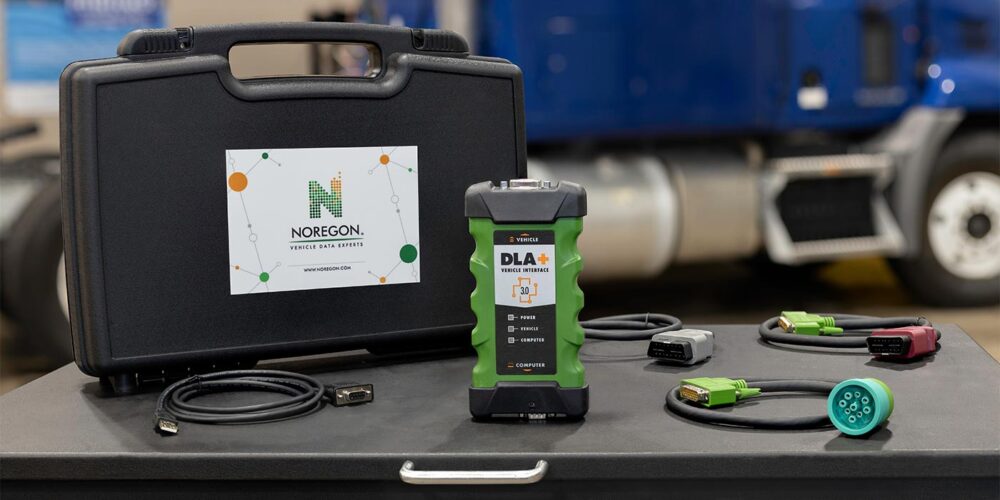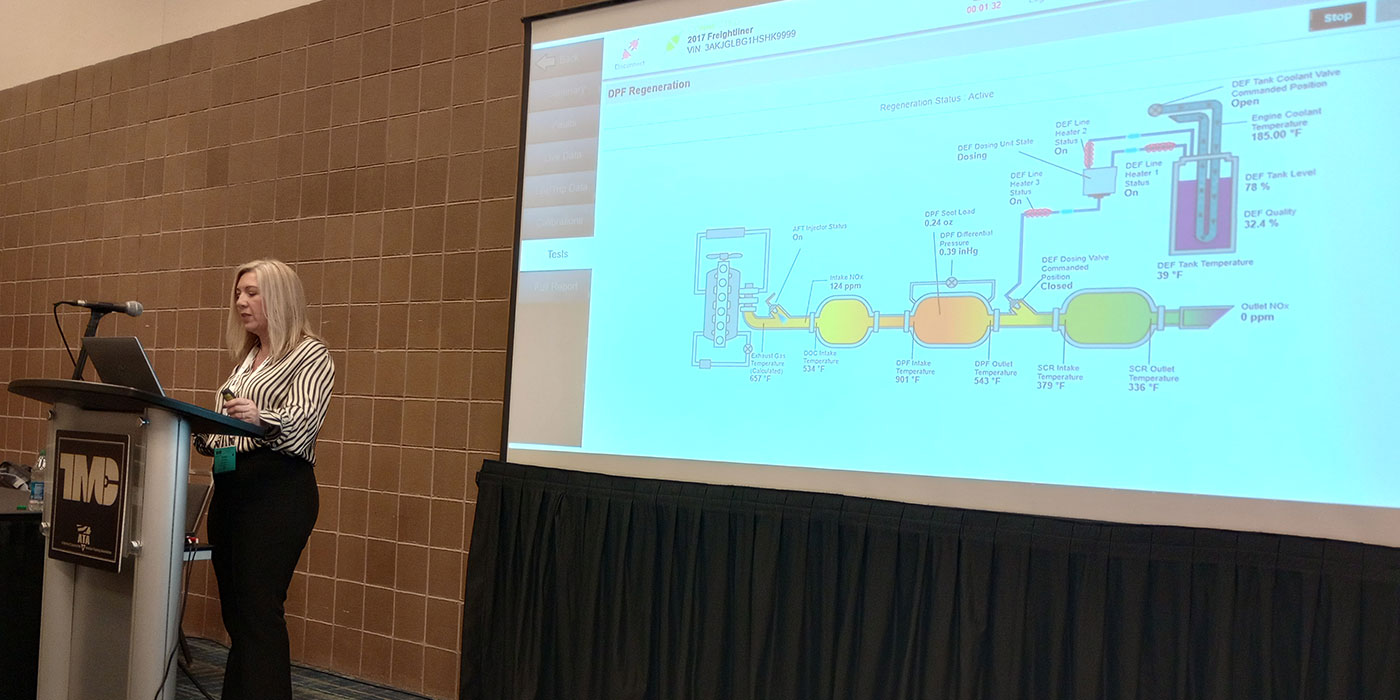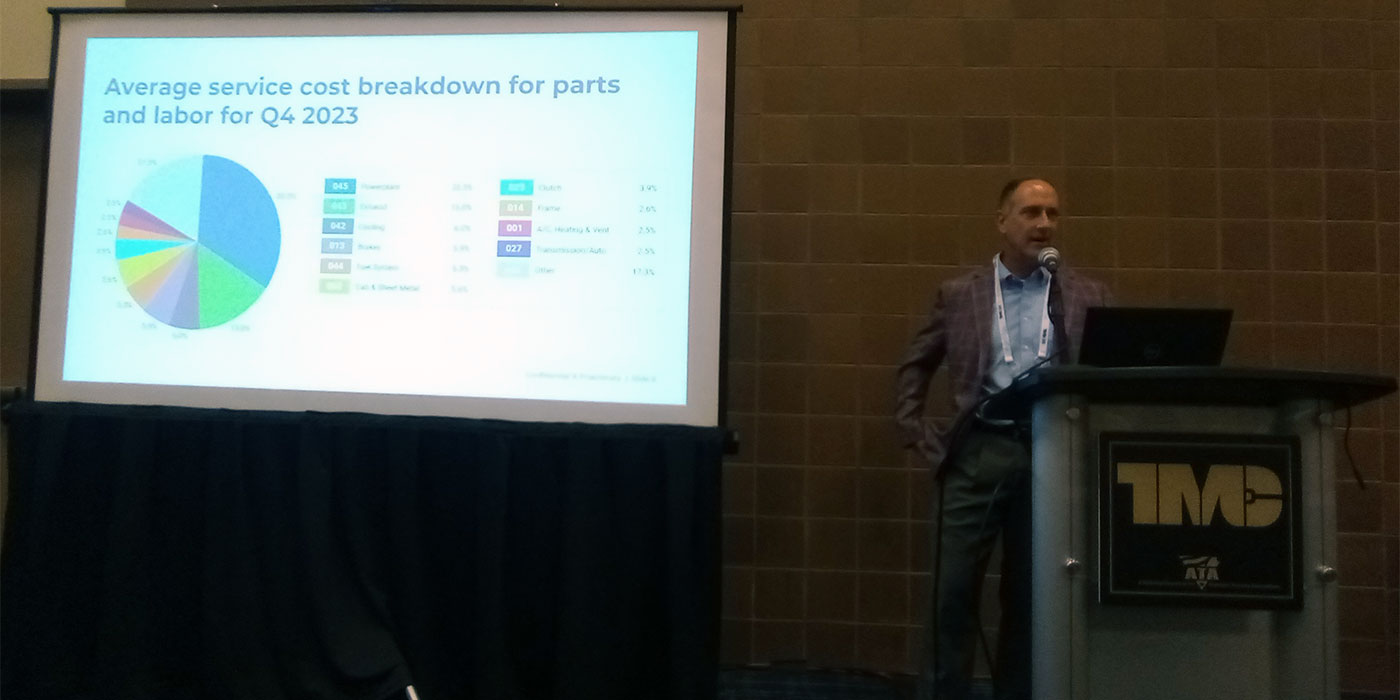My wife, Janet, loves to count lines contained in road sign letters. This is a habit instituted by her grandmother during long road trips, no doubt to occupy the time of an energetic and bored young girl. How she determines what constitutes a line in each letter remains an analytical metric that continues to escape my comprehension.
However, Janet explains it quit easily: She’s able to identify and calculate the lines in a word, uniquely by the font style, and at a glance no less. Useful? Not particularly. She actually finds it quite annoying. Intriguing? Absolutely!
The world is filled with data, collected and uncollected. That data has little meaning until it is placed in a context that can be used to make that data usable. When it comes to collecting maintenance data, for instance, the fleet is confronted with a problem–namely what data needs to be collected.
In an ideal world, collecting the details of every element that takes place in the fleet, and then analyzing that data could provide insight into areas not previously considered. Even then, the need exists to define and determine what it means to record everything.
Thus, identifying and collecting every potential data point may not practical or possible. Since collecting everything is not a reasonable expectation, a good starting point is to determine what the fleet hopes to accomplish through the collected data on fleet operations.
Virtually every business wants to establish goals. When establishing a goal, it helps to have a starting point, because moving to a new point demands some sense of direction as to what needs to be done to get there. Let’s take a look at some basic data points that can help establish a starting point for tracking toward a future state.
• Maintenance Trends–Identify the recommended service maintenance intervals for vehicles in the fleet. Delaying scheduled maintenance could lead to premature wear and breakdowns, and also create issues with vehicle warranty coverage. On the opposite end, performing maintenance when it is not needed adds an unnecessary expense.
• Breakdown Causes–Keeping track of what causes a vehicle to breakdown, along with when such problems occur based on time or mileage, can prove very helpful in planning out preventative maintenance. Establishing when and how breakdowns can occur provides an opportunity to start inspecting such problem areas that may not be part of regularly scheduled maintenance.
• Breakdown Solutions–Knowing what caused a concern and the approach that best resolved the problem can help technicians provide more efficient service. Although there may be multiple approaches to diagnosing and repairing a problem, not all are time and cost efficient. It’s even more important to follow the approach that actually fixes the problem and keeps the vehicle from quickly returning with the same issue.
• Technician Productivity and Comebacks–Knowing how much work the shop is able to address efficiently remains a critical element to overall fleet efficiency. Rapid throughput in the shop is welcome as long as the vehicles are properly diagnosed and repaired. Keeping track of technician productivity and comebacks helps the shop meet the service needs of the fleet. In addition, this data may be used to determine where additional training needs to be provided.
There are just a few areas to consider when performing fleet maintenance. Ultimately, it is up to the fleet and/or shop management to determine which data points need to be considered to best meet the demands of the fleet.
Circling back to that annoying habit of counting lines in road signs … the 1970’s classic musical The Rocky Horror Picture Show comes to mind. My final thoughts are: “Dammit Janet, I love you. But the road is too long and there’s only one thing to do: Swap those road trips for a first-class flight!”
Additional tips for repair and maintenance of Class 4-8 trucks may be found in the Mitchell 1 ShopConnection Truck blog.














